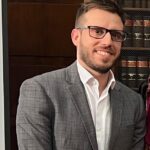28 June to 26 July
Online Seminar on Freedom of Expression in the Digital Realm: New Actors and Novel Challenges
The Internet environment has witnessed significant power shifting across the world in relation to its regulatory landscape. For some time, governments were seen as a threat to disruptive innovations, particularly the Internet, and tech companies were cheered as the champions of a free Internet. And with changes in the concentration of power, policy discussions have become focused on the dominance of tech companies and how governments can rein in them, instead of focusing on empowering users. This left the users and the public interest defenders on their own in challenging this issue of power imbalance for the sake of achieving digital justice.
As the primary digital sphere, Social Media Platforms, particularly Facebook, have become essential for online expression everywhere. However, the rising controversies over its policies have exposed it to massive pressure from users and civil society to act responsibly and transparently. This has also encouraged governments to interfere in regulating online expression. As a response, Meta established the Oversight Board (OSB), which sits as the Supreme Court of Meta, to review content moderation decisions rendered by the company and offer Meta policy recommendations. The creation of the OSB has been considered by some as an attempt by Meta to search for legitimacy. Others have welcomed the move, viewing OSB as a promising trustworthy contributor to dialogue with stakeholders on content moderation policies that are pro-free expression online.
More recently, the advent of generative AI technologies has revolutionised content creation. These AI systems can autonomously produce text, images, and even complex narratives, offering unprecedented capabilities. However, this transformation presents significant challenges for freedom of expression. The ease of creating content raises concerns about the spread of misinformation and harmful content, such as deepfakes, and biased narratives. Furthermore, legal frameworks struggle to keep pace with this evolving technology, making it unclear who is liable for harmful content generated by AI. Companies deploying generative AI must navigate this complex landscape to ensure responsible use of the technology while safeguarding freedom of expression and mitigating potential harms. This challenge underscores the need for both nuanced regulatory approaches and robust ethical guidelines.
Therefore, Columbia Global Freedom of Expression is offering this seminar to explore these two new trends, aiming to:
- Delve into the powers vested in the Oversight Board and related limitations, the role it plays nowadays in upholding human rights standards, and its status under international law as a hybrid adjudicatory body.
- Understand the impact of generative AI on freedom of expression and public discourse and engage with the question of liability for AI-generated content.
- Learn how to write a case analysis on freedom of expression court decisions.
- Introduce the participants to potential opportunities with Columbia Global Freedom of Expression and Legal Clinics in Arab Universities.
The seminar will involve a combination of presentations by experts, activities during sessions, and take-home assignments, to ensure an active, engaging atmosphere that will provide all participants with a hands-on experience.
This seminar is by invitation only.
Agenda
Friday, 28 June 2024
| 5:00- 7:30pm Cairo time | Introduction to Global Freedom of Expression Database: How to search and navigate the database and how to evaluate cases
Speakers: Hawley Johnson, Columbia GFoE; Ahmed Khalifa, Ain Shams University; Lautaro Furfaro, Columbia GFoE; Caroline James, Columbia GFoE; Juan Manuel Ospina, Columbia GFoE; Ibrahim Sabra, University of Vienna. |
Friday, 5 July 2024
| 5:00-7:30pm
Cairo time |
Exploring Meta’s Oversight Board Decisions from a Human Rights Jurisprudence Lens
Speaker: Joan Barata, Future Free Speech Project. |
Friday, 12 July 2024
| 5:00-7:30pm
Cairo time |
Meta’s Oversight Board as a Transnational Quasi-judicial Human Rights Tribunal Under International Law
Speaker: Khaled Mansour, Board Member, Meta Oversight Board. |
Friday, 19 July 2024
| 5:00-7:30pm
Cairo time |
Generative AI’s Impact on Free Speech and the Liability Debate on AI- Generated Content
Speaker: Jordi Calvet-Bademunt, Research Fellow, Future of Free Speech Project. |
Friday, 26 July 2024
| 5:00-7:30pm
Cairo time |
Closing session
Speakers: Hawley Johnson, Columbia GFoE; Ahmed Khalifa, Ain Shams University; Ibrahim Sabra, University of Vienna. |
Organised by Columbia University Global Freedom of Expression in collaboration with the MENA Rounds Coordinator of Oxford’s Price Media Law Moot Court Competition
 Hawley Johnson, Associate Director, Columbia Global Freedom of Expression
Hawley Johnson, Associate Director, Columbia Global Freedom of Expression
Dr. Hawley Johnson is the Associate Director of Columbia Global Freedom of Expression. Since 2014 she has managed the development of the Case Law Database which hosts analyses of seminal freedom of expression court rulings from more than 130 countries. Hawley has over twelve years of experience in international media development both academically and professionally, with a focus on Eastern Europe. From 2013-2014 she worked with the award-winning Organized Crime and Corruption Reporting Project to launch the Investigative Dashboard (ID), a joint effort with Google Ideas offering specialized databases and research tools for journalists in emerging democracies. Previously, as the Associate Director of the Media and Conflict Resolution Program at New York University, she oversaw the implementation of over eight US government sponsored media development programs in eleven countries. In 2012, she completed her Ph.D. in Communications at Columbia University’s Graduate School of Journalism. Her dissertation – a study of the evolution of media development policies in Bosnia-Herzegovina, Kosovo and Macedonia – was grounded in extensive field research in the region. She has a M.A. from Columbia University’s School of International and Public Affairs and a B.A. in International Affairs from the School of International Service at American University.
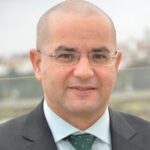 Ahmed Khalifa, Assistant Professor of Law, Ain Shams University, Cairo, Egypt
Ahmed Khalifa, Assistant Professor of Law, Ain Shams University, Cairo, Egypt
Ahmed is an Assistant Professor of Law at Ain Shams University in Cairo, Egypt. Since 2014, he has served as the Deputy Secretary General of the International Association of Penal Law and as a member of the Board of Directors of the Siracusa International Institute for Criminal Justice and Human Rights in Siracusa, Italy. Dr. Khalifa has been the Middle East Regional Coordinator for the University of Oxford Price Media Moot Court Competition since 2015. Dr. Khalifa is an expert consultant with the ICRC in the MENA region and serves as a consultant for several international organizations, including the United Nations Office on Drugs and Crime (UNODC) and the United Nations Children’s Fund (UNICEF). Previously, he was a full-time in-house legal consultant with the United Nations Interregional Crime and Justice Research Institute (UNICRI) in Torino, Italy. Dr. Khalifa obtained his PhD in International Criminal Law from Poitiers University in France after completing his LLM in International Human Rights Law from Temple University, USA. His research areas cover international criminal law, international humanitarian law, and international human rights law.
 Caroline James, Advocacy Coordinator, AmaBhungane Centre for Investigative Journalism
Caroline James, Advocacy Coordinator, AmaBhungane Centre for Investigative Journalism
Caroline James is a South African freedom of expression lawyer. Since 2022 she has been the advocacy coordinator for the amaBhugane Center for Investigative Journalism. She completed her M.A. at Queen’s University in Canada has BA(Hons) and LLB degrees from the University of the Witwatersrand in Johannesburg, South Africa. Her research interests are in constitutional and human rights law – particularly the way in which power is held to account. Caroline previously worked as the freedom of expression lawyer at the Southern Africa Litigation Centre in Johannesburg where she worked with lawyers and organizations in southern Africa litigating and advocating for the right to freedom of expression and association. Caroline has also worked as a judge’s clerk at the South Gauteng High Court in Johannesburg.
Lautaro Furfaro, Legal researcher, Columbia Global Freedom of Expression
Lautaro Furfaro is a legal researcher at Columbia Global Freedom of Expression. He is an international lawyer specializing in International Human Rights Law and International Law. He holds a Master of Laws in International Legal Studies from New York University Law School (2022), where he received the convocation award “Public Interest Law Prize” for demonstrating a clear commitment to public service and significant causes of public interest. He is a lawyer (J.D.) who graduated with honors from the University of Buenos Aires School of Law, specializing in International Law. Lautaro is currently an Adjunct Professor at the University of Buenos Aires School of Law, where he teaches International Human Rights Law. He is also co-Professor in the course Philosophical Foundations of Human Rights in the Master of International Human Rights Law at the University of Buenos Aires. Furthermore, he is an Assistant Professor of International Law in the foreign relations program at the Universidad Torcuato Di Tella.
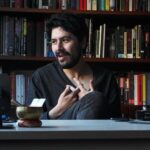 Juan Manuel Ospina, Editor and Legal Researcher, Columbia Global Freedom of Expression
Juan Manuel Ospina, Editor and Legal Researcher, Columbia Global Freedom of Expression
Ibrahim Sabra, Research associate, Department of Innovation and Digitalisation in Law, University of Vienna
Ibrahim Sabra, a Chevening Alumnus from Egypt, is a young scholar in AI governance, internet regulation, and digital rights. He is a dedicated advocate for responsible innovation that safeguards social justice and internet freedom, particularly within the Global South. He currently works as a research associate at the University of Vienna’s Department of Innovation and Digitalisation in Law, where he contributes to cutting-edge research, further solidifying his position as an aspiring expert in the dynamic field of technology law. Ibrahim has diverse experience with global and regional institutions, including Columbia University’s Global Freedom of Expression, the Berkman Klein Center, the Center for AI and Digital Policy, and Strathmore University’s Centre for IP and IT Law. Previously, he taught law at the British University in Egypt Faculty of Law, covering subjects such as human rights law, EU law, public international law, and legal research for undergraduates. Additionally, he taught cyberlaw and cybercrime to postgraduates. His active involvement in multiple initiatives focused on fostering mooting culture, clinical education, and practice-informed research in law schools stands out, notably his leadership in establishing the Moot Court Unit at the British University in Egypt’s Law Faculty.
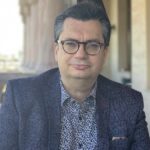 Joan Barata, Senior Legal Fellow, Justitias Future Free Speech project
Joan Barata, Senior Legal Fellow, Justitias Future Free Speech project
Joan Barata works on freedom of expression, media regulation, and intermediary liability issues. He is a Senior Fellow at Justitias Future Free Speech project. He is a Fellow of the Program on Platform Regulation at the Stanford Cyber Policy Center. He has published a large number of articles and books on these subjects, both in academic and popular press. His work has taken him in most regions of the world, and he is regularly involved in projects with international organizations such as UNESCO, the Council of Europe, the Organization of American States or the Organization for Security and Cooperation in Europe, where he was the principal advisor to the Representative on Media Freedom. Joan Barata also has experience as a regulator, as he held the position of Secretary General of the Audiovisual Council of Catalonia in Spain and was member of the Permanent Secretariat of the Mediterranean Network of Regulatory Authorities.
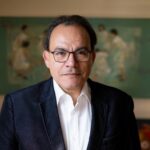 Khaled Mansour, Board Member, Meta Oversight Board
Khaled Mansour, Board Member, Meta Oversight Board
Jordi Calvet-Bademunt is a Research Fellow at The Future of Free Speech and a Visiting Scholar at Vanderbilt University. His research focuses on free speech in the digital space. Jordi has been a fellow at the Internet Society and holds a Master’s in public administration from Harvard University (Cambridge, Massachusetts), where he specialized in tech and AI policy. While at Harvard, Jordi supported the former chairman of the U.S. Federal Communications Commission, two former senior Department of Justice officials, and the former Chair of the MIT Economics Department with the organization of a year-long seminar series on tech policy. Jordi has almost a decade of experience as a policy analyst at the Organization for Economic Co-operation and Development and as an associate in leading European law firms. He holds a Master of Law from the College of Europe (Bruges, Belgium) and two Bachelor of Laws and Business Administration from Pompeu Fabra University (Barcelona, Spain).

